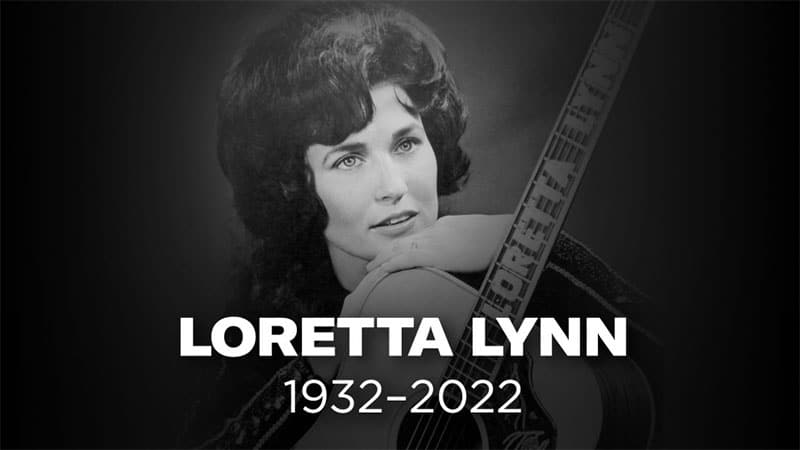
Loretta Lynn’s Life: A Journey of Talent, Turmoil, and Triumph
A Love That Hurt:
Loretta Lynn’s marriage to Oliver “Doolittle” Lynn was one of country music’s most guarded secrets — a bond defined by love, hardship, and violence. In her memoir, Loretta bravely exposed the darkest corners of their relationship, including the most harrowing betrayal: Doolittle once told her he was leaving — while she was giving birth to one of their sons.
From Cold Walls to Warm Songs:
Born in 1932 in the coal-mining hills of Kentucky, Loretta was the second of eight children. Her family’s life in a cramped cabin was marked by poverty, with winters so harsh that her mother insulated the walls using pages from a Sears catalog. It’s no surprise that young Loretta dreamed of escape — and that escape came in the form of a man named Doolittle Lynn.
They met at a pie social when Loretta was just 15 and Doolittle was 21. Despite warnings about his lazy and dangerous tendencies — including rumors of moonshine running — Loretta married him. Pregnant soon after, she left Kentucky for Washington state, where her husband found work in the logging industry. Children came quickly: Betty Sue, Jack Benny, Ernest Ray, and Clara Marie.
A Voice Found in Hard Times:
Doolittle saw Loretta’s musical spark but knew her insecurity held her back. So, he bought her a $17 guitar from Sears and pushed her to believe in herself. He entered her into a local talent show in Tacoma, where she impressed the judges but won only a wristwatch.
Still, her voice reached a man named Norm Burley, who was so moved by her sound that he funded a trip to Hollywood for a recording session. Burley even founded Zero Records just for her. But real traction didn’t come through the mail — it came from the road. Loretta and Doolittle drove across the country, sleeping in their car, hand-delivering records to radio stations. Eventually, “I’m a Honky Tonk Girl” broke through, reaching No. 14 on the Billboard chart.
The Rise of a Country Legend:
From there, things took off. She toured with the Wilburn Brothers and appeared on Ernest Tubb’s “Midnite Jamboree,” which led to the biggest call of all — the Grand Ole Opry. But behind the scenes, her marriage grew volatile. Doolittle was controlling and abusive — smashing jars during arguments and hitting her. Loretta, never one to back down, fought back just as fiercely — once even with a skillet of creamed corn.
Her pain became her pen. She poured the chaos of her home life into music. Songs like “You Ain’t Woman Enough (To Take My Man)” and “Fist City” were blunt, bold, and autobiographical. Some were banned from radio — but fans loved her honesty.
Friendship and Heartbreak:
Loretta found a kindred spirit in Patsy Cline after singing “I Fall to Pieces” on the radio. Cline, recovering from a car crash, sent her husband to bring Loretta over. Their bond became sisterly, and Patsy even gifted Loretta her old underwear — a strange but sweet gesture between close friends. Their relationship inspired a TV movie, “Patsy & Loretta.”
But tragedy struck when Cline died in a plane crash in 1963. The loss devastated Loretta, but also lit a fire in her to carry on her friend’s legacy.
Fighting for Her Art:
Loretta’s success continued, but not without cost. The Wilburn Brothers, who had helped her get to Decca Records, also locked her into a deal that took ownership of all her songs. She fought for decades to reclaim her rights. Still, she kept climbing. “Dear Uncle Sam,” written after giving birth to twins, stunned audiences with its Vietnam War theme.
At age 34, Loretta became a grandmother. That same year, she and Doolittle bought not just a ranch, but the entire town of Hurricane Mills, Tennessee — which became home to her family and a yearly motocross race that she personally supported.
Hollywood Fame and Personal Loss:
In 1980, her life hit the big screen in Coal Miner’s Daughter. Sissy Spacek, whom Loretta personally chose for the role, won an Oscar. Tommy Lee Jones portrayed Doolittle and eventually won his respect by method-acting — including getting arrested after a moonshine-fueled Jeep ride.
The success was bittersweet. In 1984, Loretta’s son Jack Benny drowned while trying to cross Duck River on horseback. Loretta, hospitalized from exhaustion at the time, received the news while recovering.
The Final Chapter with Doolittle:
Years of drinking and diabetes caught up with Doolittle. After heart surgery and leg amputations, Loretta put her career on hold to care for him. He died just days before his 70th birthday. Despite everything — the fights, affairs, and trauma — Loretta always said she owed her career to him. And when he was gone, she saw him everywhere.
To cope, she wrote the heartbreaking song “I Can’t Hear the Music.” Even in grief, she kept creating.
An Unlikely Revival:
In 2004, at age 72, Loretta made a stunning comeback. Partnering with Jack White of The White Stripes, she released Van Lear Rose — her 42nd album — which reached No. 2 on the Billboard country chart. The project introduced her to a whole new generation, proving her fire never faded.
Legacy of a Legend:
Loretta Lynn’s life was not just a country song — it was the whole country music story. Full of pain and power, love and loss, her truth-telling lyrics, iron will, and unshakable spirit shaped the genre forever. She didn’t just sing about life — she lived it louder than most ever dare.